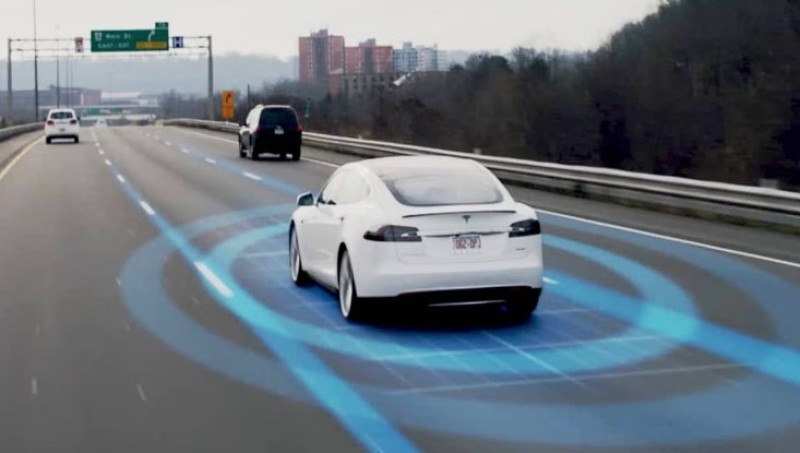Pioneering EV-maker says it will correct the problem with over-the-air software update.
By Todd Lassa
Published: Dec 13, 2023
- Tesla is recalling more than 2 million Models 3, Y, S, and X for inadequately assuring that drivers pay attention and maintain control of the vehicles while using Autopilot.
- The recall affects 2012-23 Model S, 2016-23 Model X, 2017-23 Model 3, and 2020-23 Model Ys—so, just about all of them.
- The Tesla recalls will be achieved by an over-the-air software update, which was to begin deployment “on or shortly after” Tuesday, Dec. 12.
Two years after the National Highway Traffic Safety Administration began investigating crashes of Tesla models set on its Autopilot self-driving feature and nearly two months after General Motors pulled its Cruise robotaxis permanently from the streets of San Francisco after high-profile accidents and mishaps, Tesla is recalling more than 2 million Models 3, Y, S, and X for inadequately assuring that drivers pay attention and maintain control of the vehicles while using Autopilot.
The recall centers on Tesla Autopilot’s Autosteer and Traffic-Aware Cruise Control (TACC) Level 2 driver-assistance that can provide steering, braking, and acceleration “support” to the driver under limited operating conditions.
Related Story
“When Autosteer is engaged, as with all SAE Level 2 advanced driver-assistance features and systems, the driver is the operator of the vehicle,” according to NHTSA Safety Recall Report 23V-838.
“In certain circumstances when Autosteer is engaged, the prominence and scope of the feature’s controls may not be sufficient to prevent driver misuse of the SAE Level 2 advanced driver-assistance feature,” NHTSA says. The recall affects 2012-23 Model S, 2016-23 Model X, 2017-23 Model 3, and 2020-23 Model Ys—so, just about all of them.
Tesla says it did not agree with NHTSA’s analysis of the system, according to The Guardian. The EV maker has not had a public relations department for years, so we reached out to the company’s CEO, Elon Musk, on his privately owned social media site X (formerly Twitter) for comment. We have not yet received a reply—not even a “poop” emoji.
A Tesla owner with full self-driving software says it’s “not really useful enough at this point.”
Tesla’s “recall” will not require owners to drive their vehicles to any sort of service center. Rather, the recalls will be achieved by an over-the-air software update, which was to begin deployment “on or shortly after” Tuesday, Dec. 12, with “remaining” affected Teslas getting the software remedy “at a later date,” according to NHTSA. Teslas in production received the update at the factories, beginning Dec. 7.
In 2016, Musk declared that “The basic news is that all Tesla’s vehicles leaving the factory have all the hardware necessary for Level 5 autonomy,” The New York Times recalled in a Dec. 6, 2021, news story.
Over the past eight years, Musk has repeatedly touted Autopilot’s abilities and once told an earnings report conference call with stock analysts that he thought it irresponsible for any automaker to hold back on providing the latest self-driving technologies that could potentially save lives.
While Musk once said Tesla owners are smart enough to understand the limitations of Autopilot’s “full self-driving” capabilities, there have been numerous social media videos by owners riding in the back seat as Autopilot operated their cars with no one behind the wheel. Here’s one of them, circa 2021, on YouTube.
According to the NHTSA recall report, when Autosteer or any other Level 2 system is engaged, “as the vehicle operator, the driver is responsible for the vehicle’s movement with their hands on the steering wheel at all times, remaining attentive to surrounding road conditions, and intervening … as needed to maintain safe operation.”
Last June, analyzing NHTSA data, The Washington Post reported that Autopilot software was involved in 17 fatalities and 736 crashes since 2019.
Related Story
Last October, Musk told stock analysts in Tesla’s third-quarter earnings call that “full-self driving” software would be available for download before the end of this year, but added, “It won’t have regulatory approval at the time.”
We caught up with our Tesla Model Y-owning friend, “Pat,” for reaction to this recall.
“Tesla’s pretty good about pushing regular updates, sometimes with significant ch
anges—often, but not always, improvements—to the car’s capabilities and functionality,” Pat replied.
“It’s hard to say for sure what they’re changing, but any pushes toward being more attentive don’t bother me much since I generally like being alive and try to remain so. Although I have the ‘full self-driving’ software for my car, it’s not really useful enough at this point that I use it all that much in my daily commute.”





